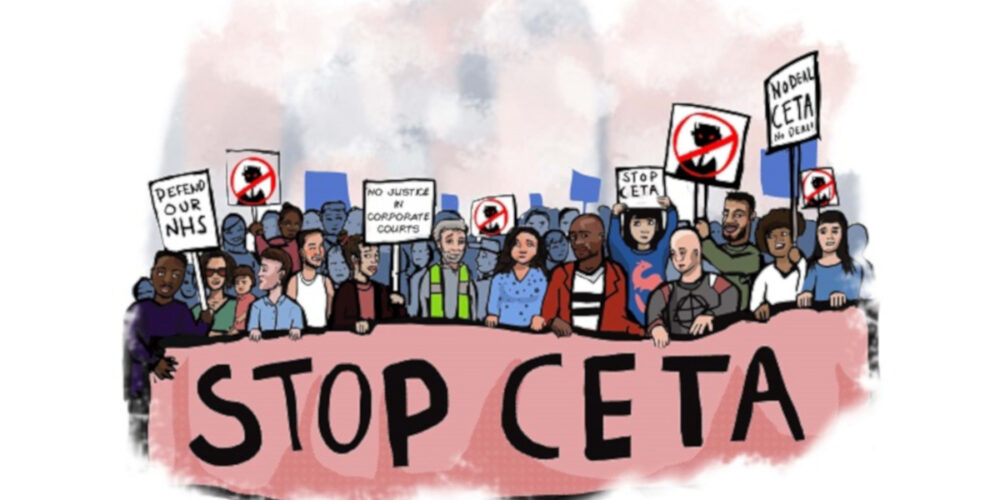The Government has been forced to postpone a controversial vote on the Comprehensive Economic and Trade Agreement (CETA)—a free-trade agreement between the European Union and Canada—until the new year.
It had hoped to have it ratified by the Dáil after a 55-minute debate on 15 December. The vote had already been postponed from October to give the Green Party leader, Eamon Ryan, time to convince his members to support the treaty, which he has failed to do. A number of senior members still have concerns, and they are attempting to force a special convention of the party to debate it.
Four motions have been put forward:
- to ratify the agreement,
- not to ratify it,
- to postpone the vote, and
- to have a debate and then a vote.
The Green Party have campaigned since 2016 against CETA. But they have a record on policy changes. They campaigned against the Lisbon Treaty; when it was defeated and a second vote was called, Eamon Ryan, at a special convention, made a passionate appeal to party members to back the treaty, “for the sake of all of us and of our children.” They backed it.
It is likely that they will change policy again and support this treaty, which has catastrophic implications for the environment. CETA gives corporations the right to sue governments for regulatory changes that could affect future profits. This would be done in private “investor-state dispute settlement” (ISDS) courts. This would be an unequalled transfer of power from government to corporations through these special courts.
CETA would damage Ireland’s ability to legislate for stronger workers’ rights and climate action. It would have serious implications for the ability of a Government to abolish the Industrial Relations Act (1990), as this could be challenged on the grounds that stronger workers’ rights could seriously increase the workers’ share of future profits, reducing those for the business.
If the Government decided to end the practice of direct-provision companies, such as Amarok, which make millions out of these centres at present, the companies could sue. If legislation was brought in to force employers to provide company sickness pay or pension schemes, this could be challenged also.
It would put in doubt the ability to bring in a ban on fossil fuels, plastic bottles, restrictions on waste disposal, emission limits, taxes on sugar, health warnings, or an increase in the legal drinking age, as any and all of these could affect future profits. There is no end to the possibilities for litigation. It would be an almost total transfer of power from governments to corporations through private courts.
One hundred companies are responsible for 71 per cent of all greenhouse gas emissions in the world since 1988, according to the “Carbon Majors Report” by the non-profit organisation Carbon Disclosure Project, which published the report in collaboration with the Climate Accountability Institute. With such a small number of corporations at the centre of the climate crisis, governments would need to be challenging the power of corporations, not transferring power to them.
Billions have already been paid by governments in fines and legal costs to corporations that have successfully sued governments in ISDS courts included in other trade agreements, such as the North American Free Trade Agreement (NAFTA).
The vote has been postponed; but it must be stopped. The EU portrays these treaties as free-trade agreements, but this is an Illusion. They are a lot more than that: they are the latest method in capital’s programme of deregulation and privatisation—all to increase profits for transnational corporations in a race to the bottom in regulation and workers’ rights.
CETA must be stopped. Ireland has the ability to stop it. If we refuse to ratify CETA this would have massive implications for future EU deals that include ISDS. This could have a hugely positive effect on workers’ rights and climate change for Ireland and beyond.
We have the ability to stop it, and we must do everything in our power to win this battle.






